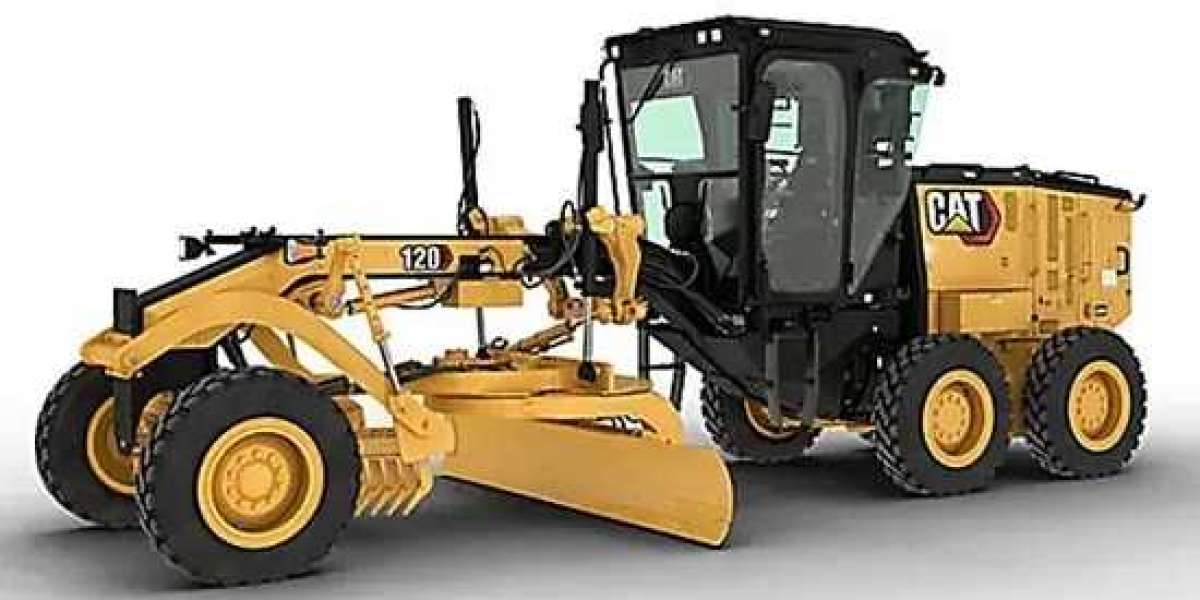The motor grader machine is a crucial piece of heavy machinery widely used in construction and maintenance projects. Characterized by its long blade situated between the front and rear axles, this machine excels in grading, leveling, and surface preparation tasks. Its design allows for precise control over material cutting and spreading, making it indispensable in road construction, mining operations, and various other applications. In this article, we will explore the key functions, features, and applications of the motor grader machine to better understand its role in modern construction and maintenance.
What is a Motor Grader?
A motor grader is a heavy machinery vehicle with a long, adjustable blade that can be tilted and angled to cut, spread, and shape materials like dirt, gravel, or asphalt. It is powered by an engine and features hydraulic controls that allow the operator to precisely adjust the blade's position to achieve the desired surface smoothness and grading accuracy.
Key Components of a Motor Grader
Motor graders consist of several important components, each serving a vital function:
- Blade (Moldboard): The central component of the motor grader. It can be tilted, angled, and rotated to perform different grading tasks.
- Circle: The circular mechanism that supports and rotates the blade, allowing for different angles of operation.
- Front Axles: These provide support and mobility for the grader and can sometimes articulate for better maneuverability.
- Scarifiers and Rippers: Attachments used to break up tough surfaces before grading begins.
- Hydraulic System: Powers the movement of the blade, scarifiers, and other attachments for precise control.
- Operator’s Cabin: Provides the operator with a comfortable and controlled environment to operate the grader efficiently.
Primary Functions of Motor Graders
Motor graders are designed for various essential tasks, including:
- Road Construction and Maintenance: One of the primary functions of a motor grader is to create a smooth, even surface for roadways. They are used to grade and level the base materials before asphalt or concrete is laid.
- Earthmoving and Leveling: Motor graders are widely used to move and level soil, gravel, and other materials during construction projects. The adjustable blade allows for precise cuts and a consistent grade.
- Snow Removal: In regions with heavy snowfall, motor graders can be fitted with plows to clear snow from roads and highways.
- Trenching and Ditching: By angling the blade, motor graders can create drainage ditches or trenches alongside roads and other areas where water needs to be channeled away.
- Slope and Embankment Work: With the blade's ability to be adjusted to various angles, motor graders can work on slopes or embankments, ensuring proper drainage and structural integrity in various terrains.
Features of Modern Motor Graders
Modern motor graders come with advanced technologies and features that improve their performance and efficiency:
- GPS and Grade Control Systems: Many graders are equipped with GPS technology and automated grade control systems to enhance precision during grading tasks.
- Articulated Steering: Some motor graders offer articulated steering for better maneuverability in tight spaces and around obstacles.
- High-Powered Engines: Modern graders are equipped with powerful engines to handle heavy workloads in harsh environments.
- Operator Comfort and Safety: The latest models provide climate-controlled cabs, ergonomic controls, and improved visibility for safer and more efficient operation.
Common Applications of Motor Graders
Motor graders are used across multiple industries, including:
- Construction: For grading roads, preparing building sites, and leveling foundations.
- Mining: To maintain haul roads and prepare surfaces for heavy equipment.
- Agriculture: In farm operations, motor graders are used for building and maintaining field roads, creating drainage ditches, and leveling land for crop production.
- Public Works: For maintaining roadways, clearing snow, and performing road repairs in municipalities and government projects.
Conclusion
Motor graders are essential tools in the construction and maintenance of roads, land development, and other large-scale projects. Their versatility, precision, and power make them indispensable in a wide variety of industries. Whether you're involved in construction, mining, or agricultural work, understanding the capabilities and functions of motor graders can enhance project efficiency and success.








